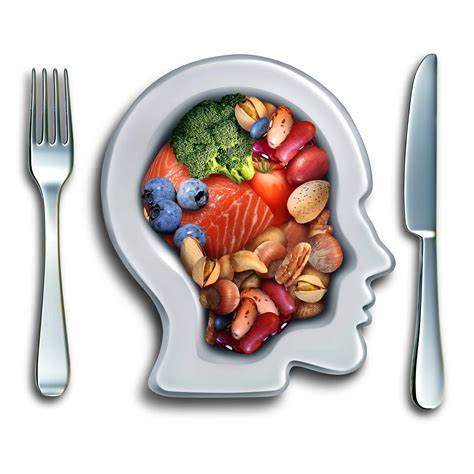The simple elegance of Zen meditation, or Zazen, in its raw and unadulterated form, carries a wonderful simplicity. You sit, you focus, and you allow the mind to clear itself. There’s an elegant simplicity in Zen meditation that often gets overshadowed by the notion that one needs expensive accessories to meditate properly. The truth is, you don’t need singing bowls, sound machines, or any other fancy tools to meditate effectively.
The heart of Zen meditation lies in the practice itself. The aim isn’t to control the mind but to let it be, observing thoughts and feelings without judgment or attachment. This alone is a powerful technique that promotes mental clarity and emotional balance.
Zen Meditation and Stress Management
When it comes to stress management, Zen meditation proves to be a great ally. By focusing your attention on the present moment and allowing your thoughts to flow freely, you give your mind the space it needs to untangle the stresses of the day. This process fosters inner peace and equanimity, helping you cope with stress more effectively.
Practicing Zen meditation encourages you to approach your life’s challenges from a place of calm and acceptance rather than tension and resistance. This not only reduces the immediate impacts of stress but also promotes long-term emotional health. Mindfulness In Your Everyday Life
The Power of Food
Let’s take a moment to appreciate another crucial aspect of our well-being: food. What we eat has a direct impact on our physical health, sure, but it also significantly affects our mental and emotional states.
When combined with Zen meditation, mindful eating can become a potent stress management tool. Just like Zen meditation, mindful eating is about being present in the moment. It’s about savoring every bite, appreciating the flavors, and acknowledging the nourishment it provides.
What’s more, selecting the right foods can influence our stress levels. Foods rich in essential nutrients like omega-3 fatty acids, antioxidants, and B vitamins support brain function and promote emotional balance. These foods help keep your mind sharp, your mood steady, and your stress levels in check.
Nourishing Your Mind: Vitamin B12 and Omega-3 Fatty Acids
When we talk about stress management, we often overlook the role of diet. Food, after all, is the primary source of the vital nutrients our bodies need to function properly. Two such nutrients are vitamin B12 and omega-3 fatty acids. They play crucial roles in brain health, contributing to improved mood and stress reduction.
Vitamin B12, for instance, is known to support the production of red blood cells, help in the synthesis of DNA, and contribute significantly to nerve function. Deficiency in B12 can lead to a host of problems, including fatigue, lethargy, depression, and memory issues—all of which can amplify feelings of stress. Some excellent sources of B12 include shellfish, lean beef, fortified plant-based milks, nutritional yeast, and eggs.
Omega-3 fatty acids, on the other hand, are considered essential fats that our bodies can’t produce by themselves. They’re integral to brain health, boasting anti-inflammatory properties, supporting memory and learning, and playing a role in mood regulation. You can find a good supply of omega-3 fatty acids in foods like fatty fish (salmon, mackerel, tuna), walnuts, flaxseeds, chia seeds, and plant oils like flaxseed oil and canola oil.
Taking It One Step At a Time
It’s essential to stress that adopting a diet rich in these nutrients isn’t an overnight process. Changing your diet is a journey, and it’s important to approach it gradually and with kindness towards yourself.
A sudden, complete overhaul of your eating habits can be overwhelming and often leads to short-lived changes. Instead, aim for small, sustainable changes—one meal at a time. Start by introducing a portion of omega-3 rich food into your lunch or include a serving of B12-rich food in your breakfast. Slowly, as these changes become a part of your routine, introduce more until you have a well-rounded diet that consistently includes these important nutrients.
When paired with Zen meditation, this gentle and progressive approach to diet can do wonders for stress management. You’re not just calming your mind with meditation, but also nourishing it with the food it needs to function optimally. In doing so, you’re creating a powerful synergy that enhances your ability to handle stress and promotes overall wellbeing. Remember, the journey to wellness is a marathon, not a sprint, and every small step you take is a victory in itself.
Meditation, Stress Management, and Food: The Triad of Well-being
Imagine this: you’re calmly sitting in your favorite meditation spot. Your mind gently comes to rest as you engage in your Zen meditation practice. Once finished, you move to the kitchen where you prepare a wholesome meal, mindful of every chop and stir. You then sit to eat, enjoying each nourishing bite.
The integration of Zen meditation, stress management, and mindful eating creates a holistic approach to wellbeing. Each component reinforces the others, leading to a more balanced and harmonious lifestyle.
Zen meditation, stress management, and the power of food are not separate concepts but rather three interlocking pieces of the wellness puzzle. They work together, enhancing your overall physical, mental, and emotional health.
Embrace the simplicity of Zen meditation, the control of effective stress management, and the power of mindful eating. The harmony between these three pillars paves the way for a more peaceful, balanced, and joyous life.

For further reading on these topics, you might find these resources helpful:
https://www.mayoclinic.org/healthy-lifestyle/weight-loss/in-depth/weight-loss/art-20047342
https://www.mayoclinic.org/healthy-lifestyle/weight-loss/in-depth/weight-loss/art-20047342
https://www.healthline.com/health/four-ways-to-improve-your-gut-if-youre-stressed
- “The Miracle of Mindfulness” by Thich Nhat Hanh
- “Zen Mind, Beginner’s Mind” by Shunryu Suzuki
- “Mindless Eating” by Brian Wansink
- “Full Catastrophe Living” by Jon Kabat-Zinn
- “The Zen Teaching of Huang Po: On the Transmission of Mind” translated by John Blofeld
Remember, your journey to wellness doesn’t require extravagance or complexity, just a simple commitment to yourself and your wellbeing.








Thank you dear Steve.